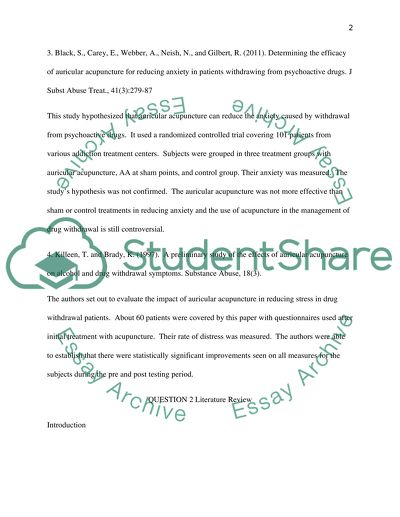Cite this document
(“Literature review of Acupuncture as an adjunct in Drug and Alcohol Essay”, n.d.)
Retrieved from https://studentshare.org/nursing/1454000-literature-review-of-acupuncture-as-an-adjunct-in
Retrieved from https://studentshare.org/nursing/1454000-literature-review-of-acupuncture-as-an-adjunct-in
(Literature Review of Acupuncture As an Adjunct in Drug and Alcohol Essay)
https://studentshare.org/nursing/1454000-literature-review-of-acupuncture-as-an-adjunct-in.
https://studentshare.org/nursing/1454000-literature-review-of-acupuncture-as-an-adjunct-in.
“Literature Review of Acupuncture As an Adjunct in Drug and Alcohol Essay”, n.d. https://studentshare.org/nursing/1454000-literature-review-of-acupuncture-as-an-adjunct-in.


